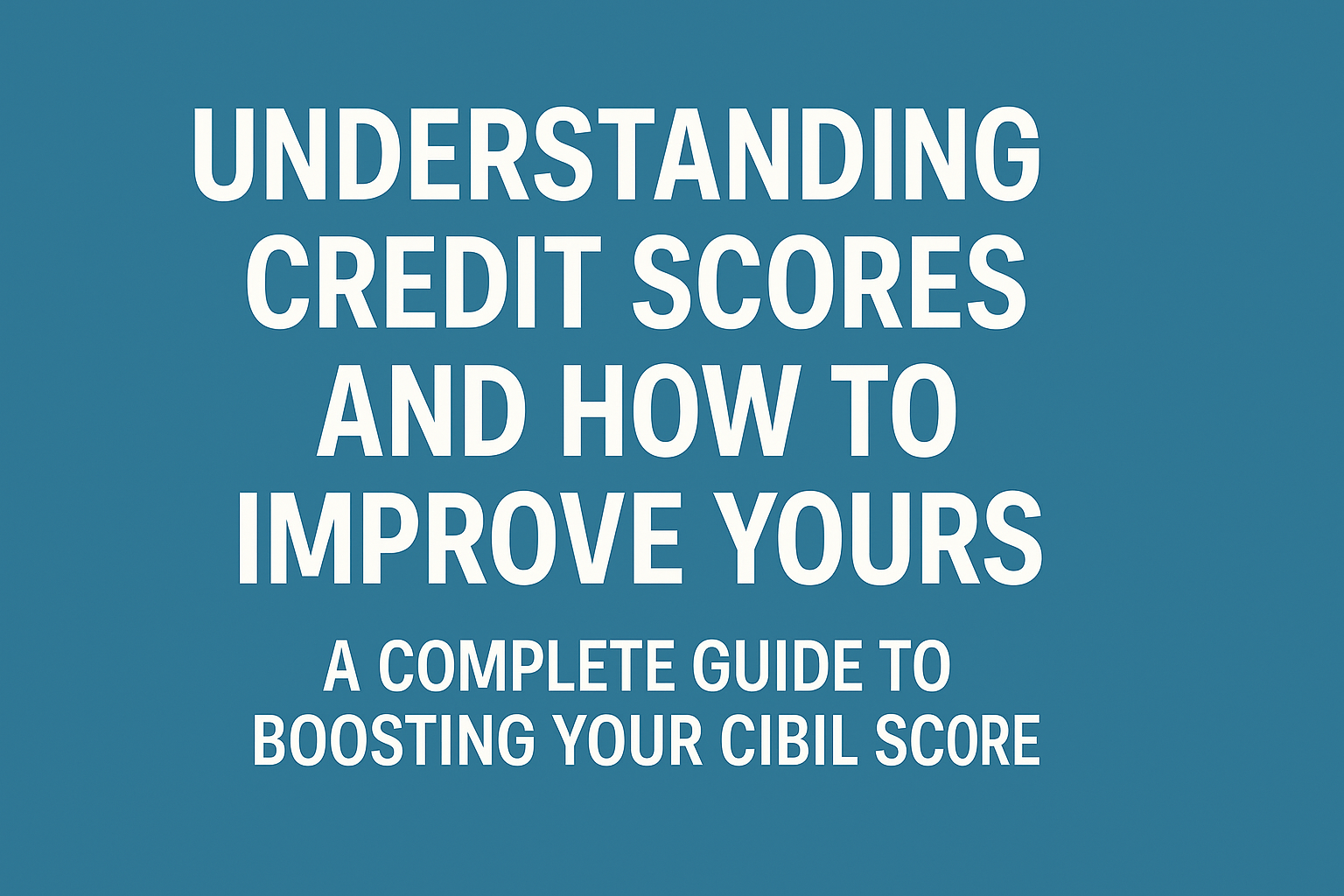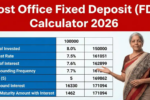In today’s financial world, your credit score is more than just a number. It plays a critical role in determining your eligibility for loans, credit cards, and even housing rentals. In India, the CIBIL score, which ranges from 300 to 900, is one of the most widely recognized measures of creditworthiness. A higher score not only improves your chances of loan approval but also helps you secure lower interest rates and better financial products.
This article will help you understand what a credit score is, the factors that affect it, common mistakes that lower your score, and practical tips to improve it.
What Is a Credit Score?
A credit score is a three-digit number that represents your creditworthiness based on your borrowing and repayment history. In India, the CIBIL score issued by TransUnion CIBIL is the most common benchmark.
- Excellent Score: 750–900 (highly favorable for loans and credit cards)
- Good Score: 700–749 (generally acceptable to lenders)
- Average Score: 650–699 (may face higher interest rates or rejections)
- Poor Score: Below 650 (difficult to get credit approval)
Your score tells lenders how risky it is to lend you money. The higher your score, the more financially reliable you appear.
Key Factors Affecting Your Credit Score
- Payment History (35%)
Your track record of paying credit card bills, EMIs, and loans on time is the most significant factor. Even a single missed or late payment can lower your score. - Credit Utilization Ratio (30%)
This refers to how much of your available credit you are using. For example, if your credit card limit is ₹1,00,000 and you spend ₹70,000, your utilization is 70%—which is considered high. Ideally, keep it below 30%. - Length of Credit History (15%)
The longer you maintain active credit accounts responsibly, the better your score. Closing old credit cards can reduce your credit history length. - Types of Credit (10%)
A healthy mix of secured loans (like home or car loans) and unsecured loans (like credit cards or personal loans) helps improve your score. - Number of Credit Inquiries (10%)
Every time you apply for a loan or credit card, the lender checks your credit score. Too many applications within a short time signal financial distress and negatively impact your score.
Common Mistakes That Hurt Your Credit Score
- Missing or delaying payments on EMIs or credit cards
- Maxing out credit cards frequently
- Closing old accounts that reduce your credit history length
- Applying for too many loans in a short period
- Ignoring errors in your credit report
These mistakes are avoidable, but many people unknowingly make them and end up lowering their CIBIL score.
Practical Tips to Improve Your Credit Score
Improving your credit score takes discipline, patience, and smart financial management. Here are some actionable steps:
1. Pay Your Bills on Time
Timely payment of EMIs and credit card dues is the single most important factor in maintaining a good credit score. Setting reminders or enabling auto-pay can help avoid missed deadlines.
2. Keep Credit Utilization Low
Try to use less than 30% of your total credit limit. For instance, if your card limit is ₹1,00,000, keep monthly usage below ₹30,000. If needed, request a higher limit instead of overspending.
3. Maintain a Healthy Credit Mix
Having only credit cards or only loans is not ideal. A balanced portfolio of secured and unsecured loans reflects responsible credit usage.
4. Do Not Close Old Credit Accounts
Older accounts help build your credit history. Instead of closing them, keep them active with occasional small transactions and timely repayments.
5. Avoid Frequent Loan Applications
Each new loan or credit card application creates a hard inquiry. Too many inquiries in a short span lower your score. Apply only when necessary.
6. Check Your Credit Report Regularly
Sometimes, errors in your report—like incorrect loan closures or duplicate accounts—can damage your score. Reviewing your CIBIL report at least once a year ensures accuracy.
7. Clear Outstanding Dues and Settlements
If you have unpaid bills or loans marked as “settled,” clear them completely. Lenders view settlements negatively, but full repayment boosts your credibility.
Quick Fixes for a Faster Boost
- Increase your credit card limit but continue low usage to improve utilization ratio
- Convert large purchases into EMIs to make repayments more manageable
- Negotiate with lenders to restructure loans instead of defaulting
- Add a co-applicant with a high credit score when applying for loans to increase approval chances
Why a Good Credit Score Matters
A strong credit score brings multiple benefits:
- Easier approval for personal loans, home loans, and car loans
- Access to credit cards with higher limits and better rewards
- Lower interest rates on loans
- Improved eligibility for renting houses or securing business credit
- In essence, your credit score is your financial passport, opening doors to better opportunities and savings.
also read:Global Economy 2025: Market Trends, Inflation, Currency Exchange, and Policy Shifts
Final Thoughts
Building and maintaining a good credit score is not a one-time task—it is a lifelong financial habit. By paying bills on time, using credit responsibly, and avoiding unnecessary debt, you can steadily improve your CIBIL score.
A higher score not only increases your chances of loan approval but also saves you money through lower interest rates and better credit terms. If you have been struggling with a low score, start today with these practical steps and take control of your financial future.






